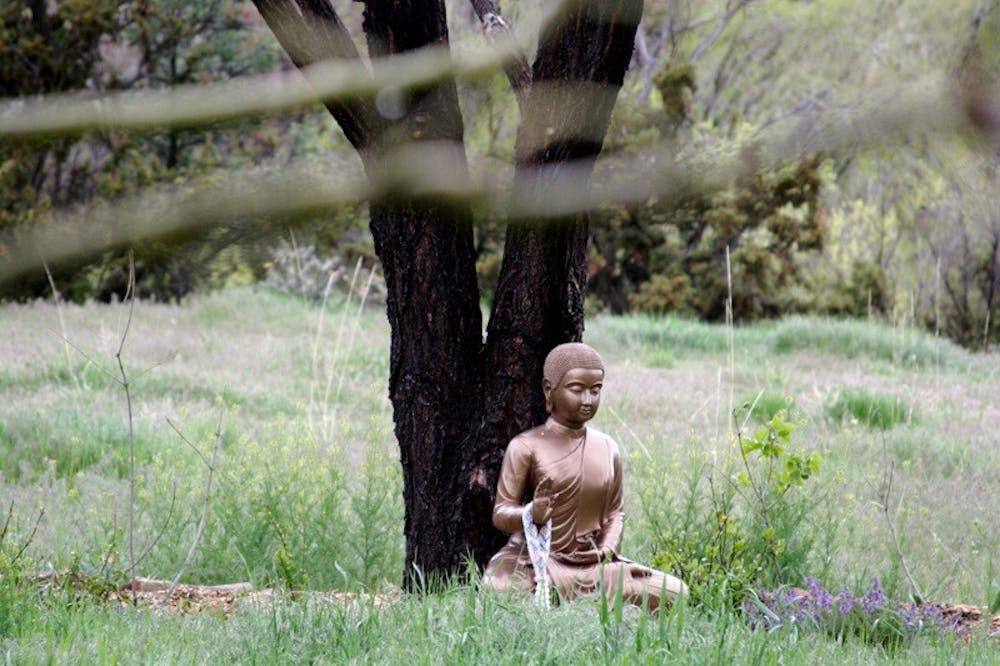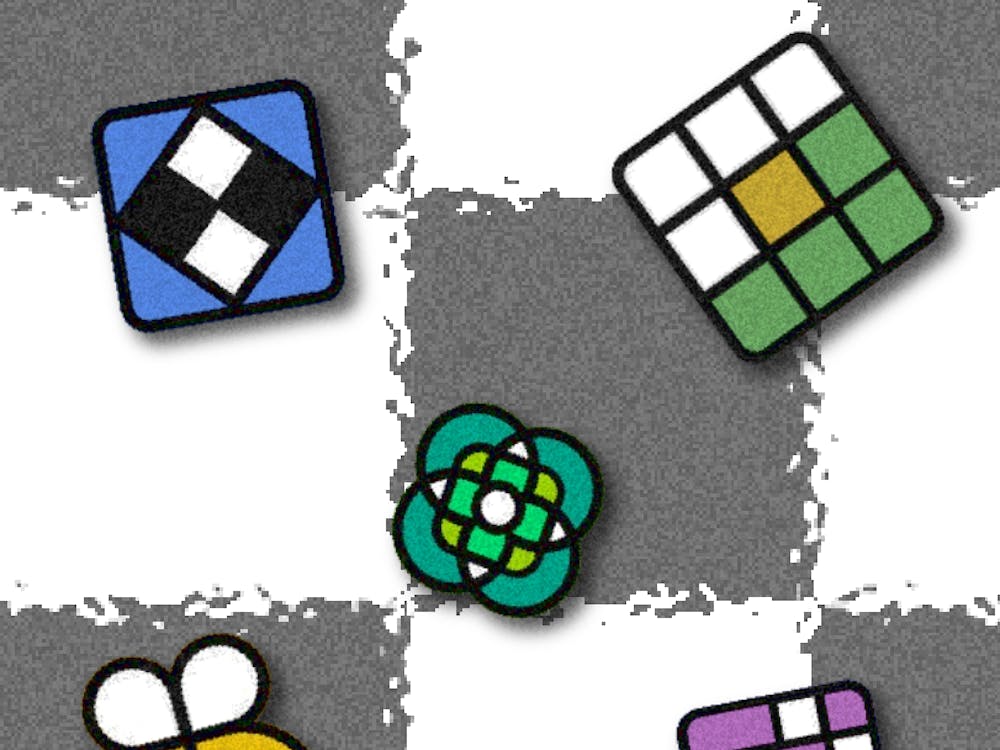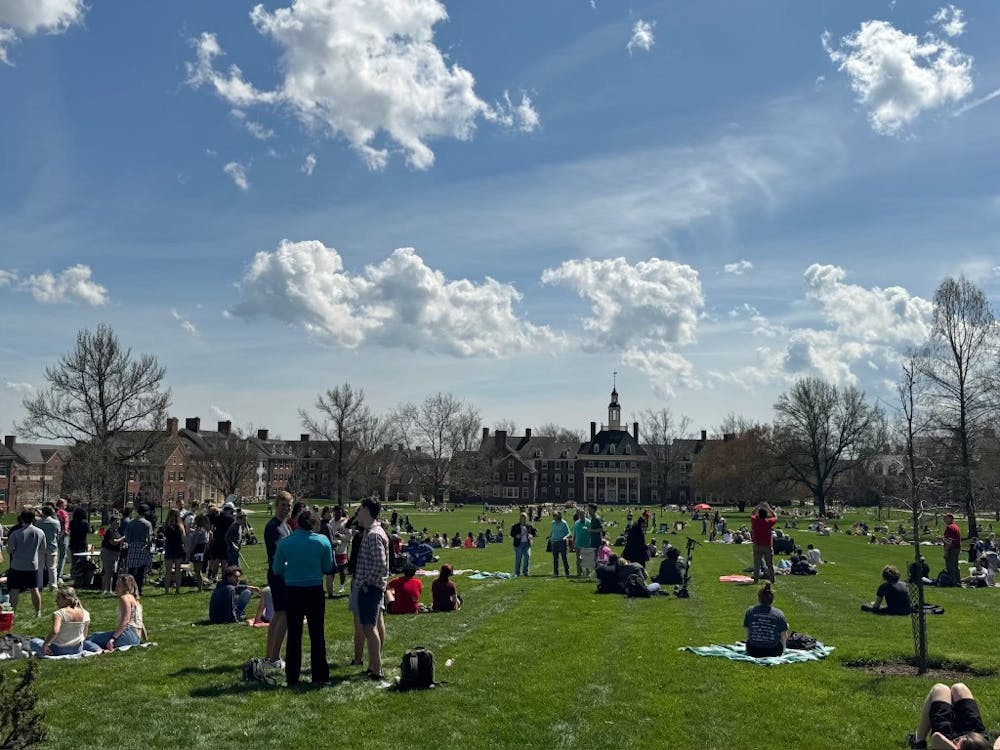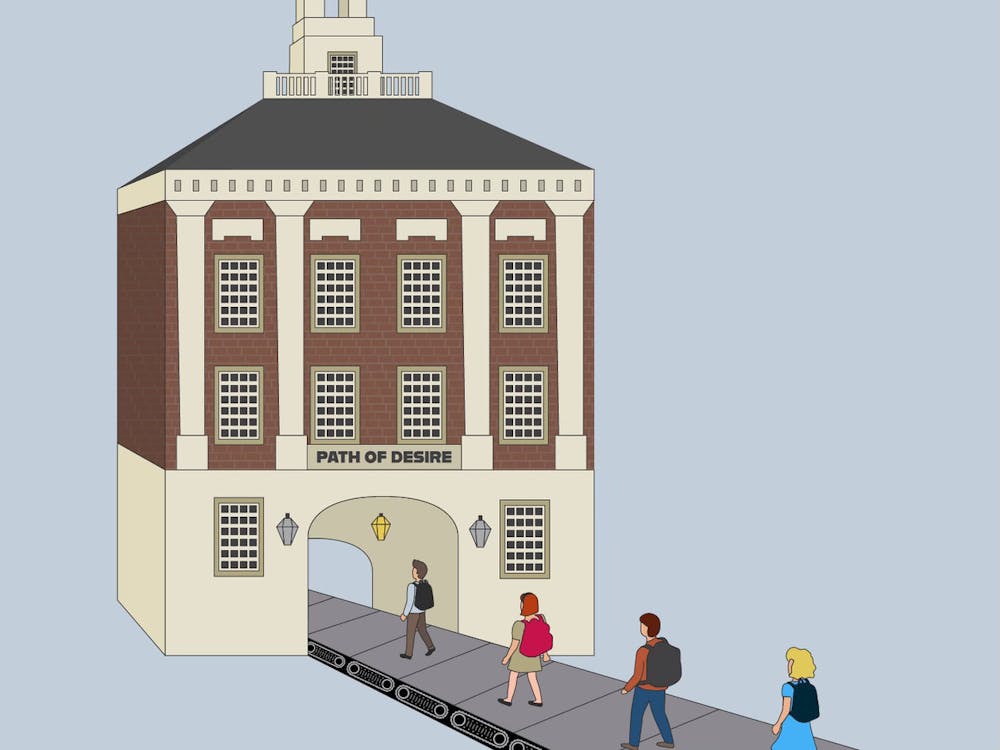Milam's Musings, milambc@miamioh.edu
A few years ago, my parents put their house on the market and had an open house.
When I came home afterward, I found religious material left in my room, encouraging me to find Jesus. No other bedroom was left with such a path to a Jesus how-to.
I still remember a handwritten note I received from a stranger years before that, when I worked for the Original Pancake House.
The stranger told me God was watching over my family and when my brother called him later in the day, the stranger had no recollection of doing this, citing it as God's will.
In the four years I've been writing this column, for one reason or another, I've had readers graciously give or loan me various religious books.
I should note: I took a break while writing this to go to Walmart. On the way there, I saw a car in front of me with the bumper sticker, "Jesus Christ is the way, the truth and the light."
What is it about me that people seem to think I need Jesus? Do I give off that "I-need-salvation" vibe?
I'm being facetious. I like to think it's because I've demonstrated my openness to ideas contrary to my own.
But I'm not a religious person. As I've mentioned in this space before, I grew up going to Sunday school and reading the Children's Bible, but neither stuck.
Yet, religion has long fascinated me and I've dived into the three monotheistic religions throughout the years, although not nearly as much as I would have liked to.
I also don't identify with atheism as much as I used to. In fact, I'd go as far as to describe my identification with atheism as a "phase." Atheism never fit exactly right.
Enjoy what you're reading?
Signup for our newsletter
Science also isn't enough for me - that's why I'm a philosophy major. But even beyond questions of ethics, I've always felt a yearning for something spiritual, something more that I couldn't quite put my mind (finger?) on.
I may have finally found it. It's a tradition that's captured my attention lately and that's Buddhism.
I recently finished Thich Nhat Hanh's The Heart of the Buddha's Teaching: Transforming Suffering into Peace, Joy, and Liberation, which I'd recommend as a great stepping stone into the subject.
I've flirted with mindfulness before, which is essentially the core of Buddhism, as I understand it.
Of course, I did so in the most Western way possible: through an app called Headspace, which promises mindfulness in just 10 minutes!
So yeah, it's a bit of Eastern tradition tailored to our Western sensibilities and need for immediacy, but the app is an easy sell when Andy Puddicombe talks to you with that soothing accent of his (To get a better idea of what Puddicombe is all about, I'd recommend his Ted Talk from 2012).
Even with Hanh's book, I had a hard time relating to the Four Noble Truths, the Noble Eightfold Path and various other numbered truths and dharma seals.
In other words, I got a bit bogged down by that part of the book, although, more generally, the notion of trying to live in the present - practicing mindfulness - is one I relate to strongly.
As a socially anxious person, and one often filled with abundant worry, the idea of living in the present is a foreign concept. Either I'm distracted by social missteps and awkwardness in the past or worrying about trying to prevent them in the future.
No matter what, then, the present is lost in the wave after wave of anxiety and worry.
Much of Western philosophy is also concerned with striving toward something, like the way we ought to live. With Buddhism, everything we could want is already right here within us.
As Hanh says, "Why wander all over the world looking for something you already have?"
Apparently, I've spent the last 25 years wandering for something spiritual to connect to and it was here all along.
I also gravitated toward the notion that doctrine and the Buddha himself is not everything.
Consider this quote Hanh attributes to Buddha, "My finger can point to the moon, but my finger is not the moon. You don't have to become my finger, nor do you have to worship my finger. You have to forget my finger, and look at where it is pointing."
That's a beautiful sentiment.
Nevertheless, I quickly found myself tweaking even my beginning immersion into Buddhism through the vehicle provided by Alan Watts.
Watts essentially Westernized Buddhism and, in particular, Zen Buddhism. As Tim Lott points out in Aeon, Watts rejected prolonged meditation, karma and reincarnation.
Zen Buddhism is about "staying in the present."
"It tries to have you understand, without arguing the point that there is no purpose in getting anywhere if, when you get there, all you do is think about getting to some other future moment," Lott said.
When I think back on my life or think about what is to come, it is often framed by, "What's next?"
With the advent of social media, I've found myself more preoccupied with getting the right pictures for a Facebook post in the future than being "awake" to the present object of those pictures.
It is sort of warped, if you dwell on it for too long, how much we make ourselves a willing subject to the tyrant of time.
I also enjoy the flexibility of Buddhism. Hanh points out that Muslims, Christians and Jews can come meditate and embrace mindfulness.
Even more interestingly, Buddhism allows for secularism. Stephen Batchelor, a secular Buddhist, was on Krista Tippett's podcast On Being earlier this year discussing his views.
Batchelor talks about how rich the Zen Buddhist tradition is for just extrapolating our deepest existential questions and enriching our curiosities, the things that baffle us and so on.
In that way, Zen Buddhism is not so much about a set of beliefs, but about "something to do."
"It's creating the conditions whereby we can embark on a way of life that is not dictated by our instinctive reactivity, our habits, our fears, and so forth and so on, but stems from an openness, an inner openness, that is unconditioned by those forces, and that allows the freedom to think differently," Batchelor says.
I'm a philosophy major going into journalism perpetually interested in religion and spirituality, society and politics.
At the heart of all of this is just curiosity and the desire to know. But maybe now I can mold it into the desire to marvel at the present.
When I took that drive to Walmart, I marveled at the sunset, as I do most days.
But I took a picture. The instinct to capture the present rendered it already the past and so it was lost.
I'm a work-in-progress.




